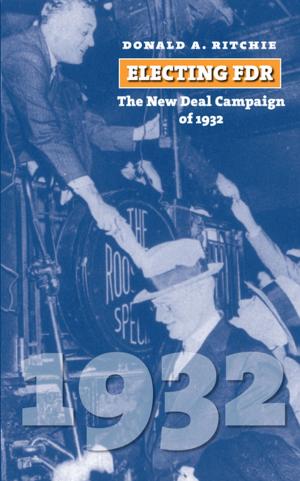Devil Dogs Chronicle
Voices of the 4th Marine Brigade in World War I
Nonfiction, History, Military, World War I, Biography & Memoir, Historical| Author: | ISBN: | 9780700626151 | |
| Publisher: | University Press of Kansas | Publication: | March 2, 2013 |
| Imprint: | University Press of Kansas | Language: | English |
| Author: | |
| ISBN: | 9780700626151 |
| Publisher: | University Press of Kansas |
| Publication: | March 2, 2013 |
| Imprint: | University Press of Kansas |
| Language: | English |
The 4th Marine Brigade, with roughly 10,000 men, was the only large Marine unit to see major action in World War I. Dubbed "Devil Dogs" by the Germans, the 4th was part of the 2nd Division of the American Expeditionary Forces, nicknamed the "Race Horse Division" for its rapid and devastating pursuit of the enemy. The 4th Brigade fought at Verdun, Soissons, St. Mihiel, Blanc Mont, and the Meuse-Argonne, and its signature victory at Belleau Wood saved Paris from falling into German hands. It was also one of the major reasons that the 2nd Division advanced more miles, captured more territory, and amassed more casualties than any other in the war.
George Clark, a former Marine and expert on Marine Corps history, here draws upon memoirs, diaries, letters, and post-war interviews—most of which have not been seen since the war ended-to create a chorus of voices chronicling the 4th Brigade's experiences. Through the words of these Marines, Clark captures the rigors of training at Paris Island and Quantico, the ferocity of combat overseas, and the strange quietude of occupation. He reveals what it was like for these men to fight in trenches while knee-deep in mud, with rats playing over them as they slept; going days between meals, often surviving on what they could forage from dead German or French packs; and even wishing for a wound that would allow some time off far from the terrors of the front. He also illuminates the dread and despair of Marines who beat the odds during one blood bath, surviving when most of their comrades did not, only to find themselves flung into an even worse battle not long afterward.
One German soldier remarked that these "Americans are savages. They kill everything that moves," a caustic testament to the Marines' intensity and prowess. But that came at a cost: by war's end the 4th had suffered a severe casualty rate of 150 percent. Vividly reflecting the horrors of that "war to end all wars," Devil Dogs Chronicle pays tribute to the Marines whose bravery helped the Allies achieve victory in the first global conflict.
The 4th Marine Brigade, with roughly 10,000 men, was the only large Marine unit to see major action in World War I. Dubbed "Devil Dogs" by the Germans, the 4th was part of the 2nd Division of the American Expeditionary Forces, nicknamed the "Race Horse Division" for its rapid and devastating pursuit of the enemy. The 4th Brigade fought at Verdun, Soissons, St. Mihiel, Blanc Mont, and the Meuse-Argonne, and its signature victory at Belleau Wood saved Paris from falling into German hands. It was also one of the major reasons that the 2nd Division advanced more miles, captured more territory, and amassed more casualties than any other in the war.
George Clark, a former Marine and expert on Marine Corps history, here draws upon memoirs, diaries, letters, and post-war interviews—most of which have not been seen since the war ended-to create a chorus of voices chronicling the 4th Brigade's experiences. Through the words of these Marines, Clark captures the rigors of training at Paris Island and Quantico, the ferocity of combat overseas, and the strange quietude of occupation. He reveals what it was like for these men to fight in trenches while knee-deep in mud, with rats playing over them as they slept; going days between meals, often surviving on what they could forage from dead German or French packs; and even wishing for a wound that would allow some time off far from the terrors of the front. He also illuminates the dread and despair of Marines who beat the odds during one blood bath, surviving when most of their comrades did not, only to find themselves flung into an even worse battle not long afterward.
One German soldier remarked that these "Americans are savages. They kill everything that moves," a caustic testament to the Marines' intensity and prowess. But that came at a cost: by war's end the 4th had suffered a severe casualty rate of 150 percent. Vividly reflecting the horrors of that "war to end all wars," Devil Dogs Chronicle pays tribute to the Marines whose bravery helped the Allies achieve victory in the first global conflict.















